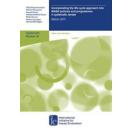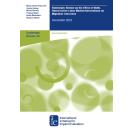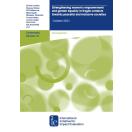
Incorporating the life-cycle approach into WASH policies and programmes: A systematic review
3ie Systematic review 35
This systematic review assesses the extent to which WASH policies, programmes and projects in eleven priority countries have been inclusive of different population segments during the Millennium Development Goals (MDG) period. It examines whether life cycle segments (LCS), such as sex, age, gender and disability, and geographic and social segments (GSS), such as urban or rural location or socioeconomic status have been reflected in WASH policies, programmes and projects. The authors find they have increasingly identified LCS and GSS population segments. GSS were more likely to be identified than LCS. A robustness index shows that the identification of barriers, strategies and benefits was more comprehensive for GSS than for LCS. Overall, the evidence showed that policy goals are not always being incorporated into programmes and projects.

